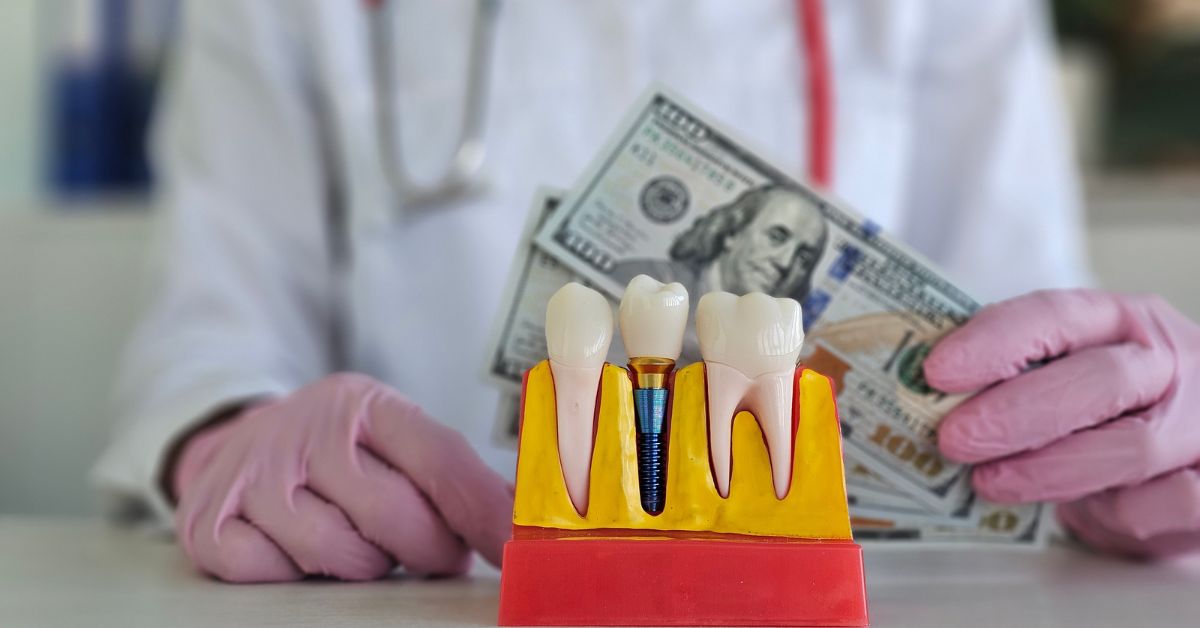Dental implants have become a popular solution for people looking to restore their smile, but one of the most frequently asked questions is, what is the average price for dental implants? While the exact cost can vary based on several factors, understanding the typical price range and what influences this cost can help you make a well-informed decision. In this article, we’ll break down the price of dental implants, offer insight into what factors affect pricing, and help you understand how you can plan for this investment in your dental health.
What is the Average Cost of Dental Implants?
Dental implants typically range between $1,500 and $6,000 per implant. However, this range can vary based on location, dentist experience, and the complexity of the procedure.
Factors Affecting the Price:
-
-
Location: The cost of dental implants can vary greatly depending on where you live. For example, cities with higher living costs, like New York or Los Angeles, tend to have more expensive dental care.
-
Implant Quality: Premium implants may cost more but often offer a higher success rate.
-
Complexity of Procedure: The need for additional procedures like bone grafts or sinus lifts can increase the price.
-
Understanding these key components helps set realistic expectations when seeking out dental implants.
How to Save Money on Dental Implants
While dental implants can be expensive, there are ways to reduce the cost.
Ways to Save on Dental Implants:
-
Shop Around: Don’t settle for the first quote you receive. Prices can vary significantly across dental clinics.
-
Look for Financing Plans: Many clinics offer payment plans or financing options to make dental implants more affordable.
-
Consider Dental Insurance: Some insurance plans may cover part of the cost for dental implants, though coverage is often limited.
-
Ask About Discounts: Some dentists may offer discounts for multiple implants or for paying in cash.
Dental Implant Procedure Breakdown
Understanding what’s involved in the dental implant process can help you feel more comfortable about the procedure.
-
Initial Consultation: Your dentist will assess your oral health and determine whether you are a good candidate for dental implants. This could include X-rays and impressions.
-
Surgical Placement of the Implant: The implant, made from biocompatible materials like titanium, is placed into the jawbone.
-
Healing Period: It typically takes 3 to 6 months for the implant to fuse with the bone, a process called osseointegration.
-
Attaching the Crown: Once healed, the permanent crown is placed on top of the implant to restore the tooth’s function and appearance.
Different Types of Dental Implants and Their Prices
-
Single Tooth Implants: The most common type, used when one tooth needs to be replaced. The cost is usually between $1,500 and $3,000.
-
Multiple Teeth Implants: Replacing more than one tooth can increase the price, especially if a full arch replacement is needed. This could range from $10,000 to $30,000.
-
All-on-4 Implants: A cost-effective solution for replacing an entire arch of teeth. The cost typically falls between $15,000 and $30,000 per arch.
-
Mini Implants: Smaller and less invasive, mini implants cost between $500 and $1,500 per implant.
Each type of implant offers unique benefits, and the right choice depends on your individual needs and budget.
Financing Options for Dental Implants
Dental implants are often considered a cosmetic procedure, which means many insurance plans may not cover the full cost. However, there are several financing options available to help you manage the cost:
-
CareCredit: A popular option for financing medical procedures with easy monthly payments.
-
Personal Loans: Some people opt for a personal loan to finance dental implants.
-
Dental Schools: Dental schools often offer discounted rates on procedures performed by students under the supervision of experienced professionals.
Tip: Always ask your dentist if they offer in-house financing or if they have recommendations for third-party financing companies.
FAQs
1. Are dental implants covered by insurance?
In most cases, dental implants are not covered by insurance as they are considered a cosmetic procedure. However, some plans may cover part of the cost for the procedure.
2. How long do dental implants last?
Dental implants can last a lifetime with proper care. The crown may need to be replaced every 10 to 15 years, but the implant itself can remain intact for decades.
3. What factors influence the price of dental implants?
The main factors include the location of the dentist, the type of implant used, the complexity of the procedure, and any additional treatments required (such as bone grafts).
4. Are there any cheaper alternatives to dental implants?
Yes, dental bridges and dentures are less expensive alternatives. However, they may not offer the same long-term benefits as dental implants.
5. How can I find a good dental implant specialist?
Look for a dentist with experience in implantology and good reviews from past patients. You can also ask for recommendations from family or friends who have had dental implants.
Conclusion
Dental implants can be a significant investment, but they offer long-lasting benefits in terms of both function and appearance. By understanding the factors that influence the cost and exploring ways to save money, you can make an informed decision that aligns with your budget. While the average price for dental implants can vary, planning ahead and discussing financing options with your dentist can help you find a solution that works for you.
